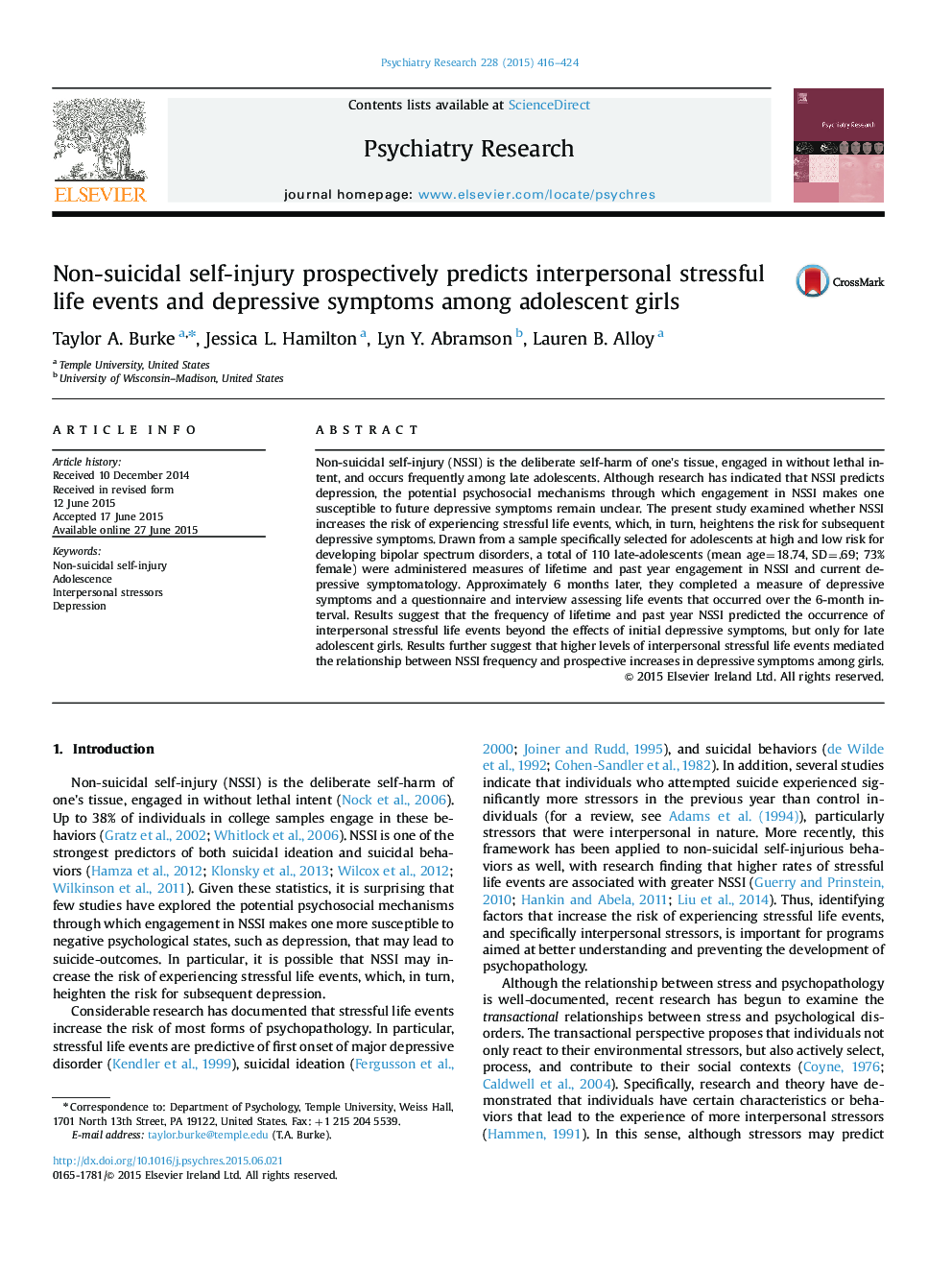| Article ID | Journal | Published Year | Pages | File Type |
|---|---|---|---|---|
| 10303689 | Psychiatry Research | 2015 | 9 Pages |
Abstract
Non-suicidal self-injury (NSSI) is the deliberate self-harm of one's tissue, engaged in without lethal intent, and occurs frequently among late adolescents. Although research has indicated that NSSI predicts depression, the potential psychosocial mechanisms through which engagement in NSSI makes one susceptible to future depressive symptoms remain unclear. The present study examined whether NSSI increases the risk of experiencing stressful life events, which, in turn, heightens the risk for subsequent depressive symptoms. Drawn from a sample specifically selected for adolescents at high and low risk for developing bipolar spectrum disorders, a total of 110 late-adolescents (mean age=18.74, SD=.69; 73% female) were administered measures of lifetime and past year engagement in NSSI and current depressive symptomatology. Approximately 6 months later, they completed a measure of depressive symptoms and a questionnaire and interview assessing life events that occurred over the 6-month interval. Results suggest that the frequency of lifetime and past year NSSI predicted the occurrence of interpersonal stressful life events beyond the effects of initial depressive symptoms, but only for late adolescent girls. Results further suggest that higher levels of interpersonal stressful life events mediated the relationship between NSSI frequency and prospective increases in depressive symptoms among girls.
Related Topics
Life Sciences
Neuroscience
Biological Psychiatry
Authors
Taylor A. Burke, Jessica L. Hamilton, Lyn Y. Abramson, Lauren B. Alloy,
